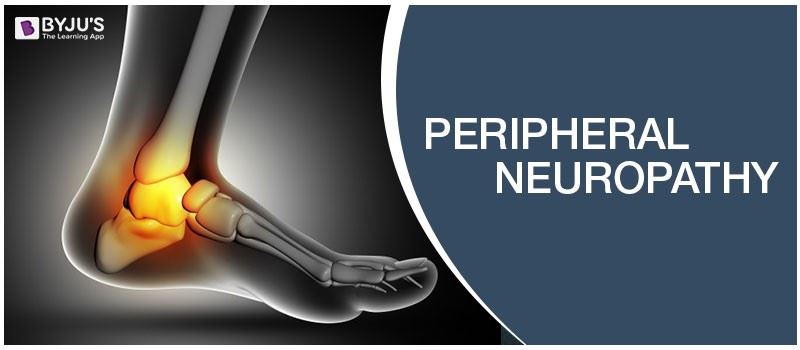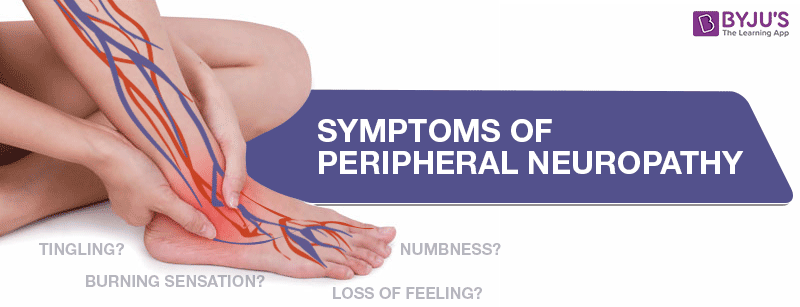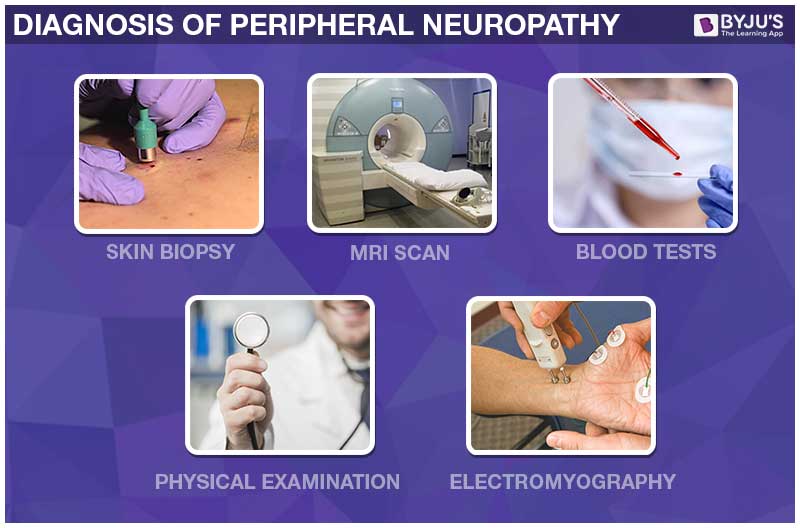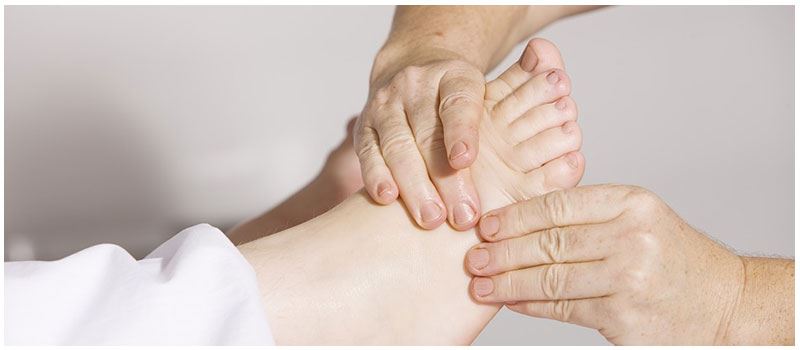Table of Contents
What is Peripheral Neuropathy?
The term Peripheral Neuropathy mainly refers to weakness, numbness and pain caused due to the nerve damage, and this syndrome is mainly seen in the forearms, hands and in feet. This is a series of disorders caused due to the damage to the peripheral nervous system.
The peripheral nervous system frames an intricate network by connecting the brain and spinal cord to the skin, muscles, and other internal organs, including the arms, legs, joints, internal organs, and also the sense organs – mouth, eyes, ears, nose, and skin. The damage to these nerves disturbs the flow of communication between the brain and other parts of the body which results in the damage to the muscle movement, loss of sensation in the fingers, arms, legs, and cause severe pain.
Also Read- Central Nervous System

Symptoms of Peripheral Neuropathy
Listed below are the symptoms of peripheral neuropathy.
- Tingling in the hands or feet.
- A weak hand and feet.
- Sharp, stabbing pains.
- Numbness in both hands and feet.
- Shocking sensation.
- Thinning of the skin.
- Low blood pressure.
- Constipation.
- Difficulties in the digestive system.
- Excessive sweating.

Causes of Peripheral Neuropathy
The main cause of Peripheral Neuropathy is diabetes. Both type 1 diabetes or type 2 diabetes result in this disorder and is termed as diabetic polyneuropathy. In this condition, higher levels of glucose in the blood cause severe damage to the blood vessels which supply blood to the supply peripheral nervous system. The other causes of peripheral neuropathy are:

- Kidney disorders.
- Hypothyroidism.
- Nutrition deficiencies- Especially the deficiency of vitamins E, B1, B6, and B12.
- Physical trauma and other injuries to the nerves caused by the accidents falls, or fractures.
- Intake of more Alcohol, Tobacco, Drugs, and exposure to toxins like insecticides, solvents, etc.
- Infections from microbes and other autoimmune disorders.
Also Refer: Diabetes and its Symptoms
Diagnosis of Peripheral Neuropathy

A patient with this syndrome is allowed to have a few lists of physical exam and then followed by-
- Blood tests to check the level of vitamin, sugar levels and the thyroid hormone.
- CT scan or MRI.
- Skin and Nerve biopsy.
- Electromyography (EMG).
- Nerve conduction studies (NCSs).
Treatment for Peripheral Neuropathy

This syndrome can be cured by antibiotics if taken for months – such as metronidazole, amiodarone, and thalidomide. Other painkillers are advised by the doctors just to relief from pain. Other medical treatment includes-
- Transcutaneous electronic nerve stimulation (TENS)
- Ergonomic casts or splints
Preventions measures for Peripheral Neuropathy
Apart from all these medicines and treatment, the patient is also advised to have the proper diet, include more vitamin-rich food, reduce the intake of sugar, regular exercise to decrease the effect of numbness, to avoid the use of alcohol, drugs, and tobacco, etc.
To know more about Peripheral Neuropathy, its causes, treatments and other related information, visit BYJU’S website.
Frequently Asked Questions
Q.1.What are the common causes of peripheral neuropathy?
The common causes of peripheral neuropathy are diabetes, exposure to certain toxins and chemicals and also from the injuries, and infections to the peripheral nervous system.
Q.2.What are the primary symptoms of peripheral neuropathy?
The symptoms include acute pain or pins-and-needles sensation, numbness, tingling sensation and weakness in both hands and feet.
Q.3.What is the peripheral nervous system?
The nervous system which connects the brain and the spinal cord to other parts of the body is called the peripheral nervous system. These nerves function by carrying information from and to the central nervous system to provide complex body functions.

Comments